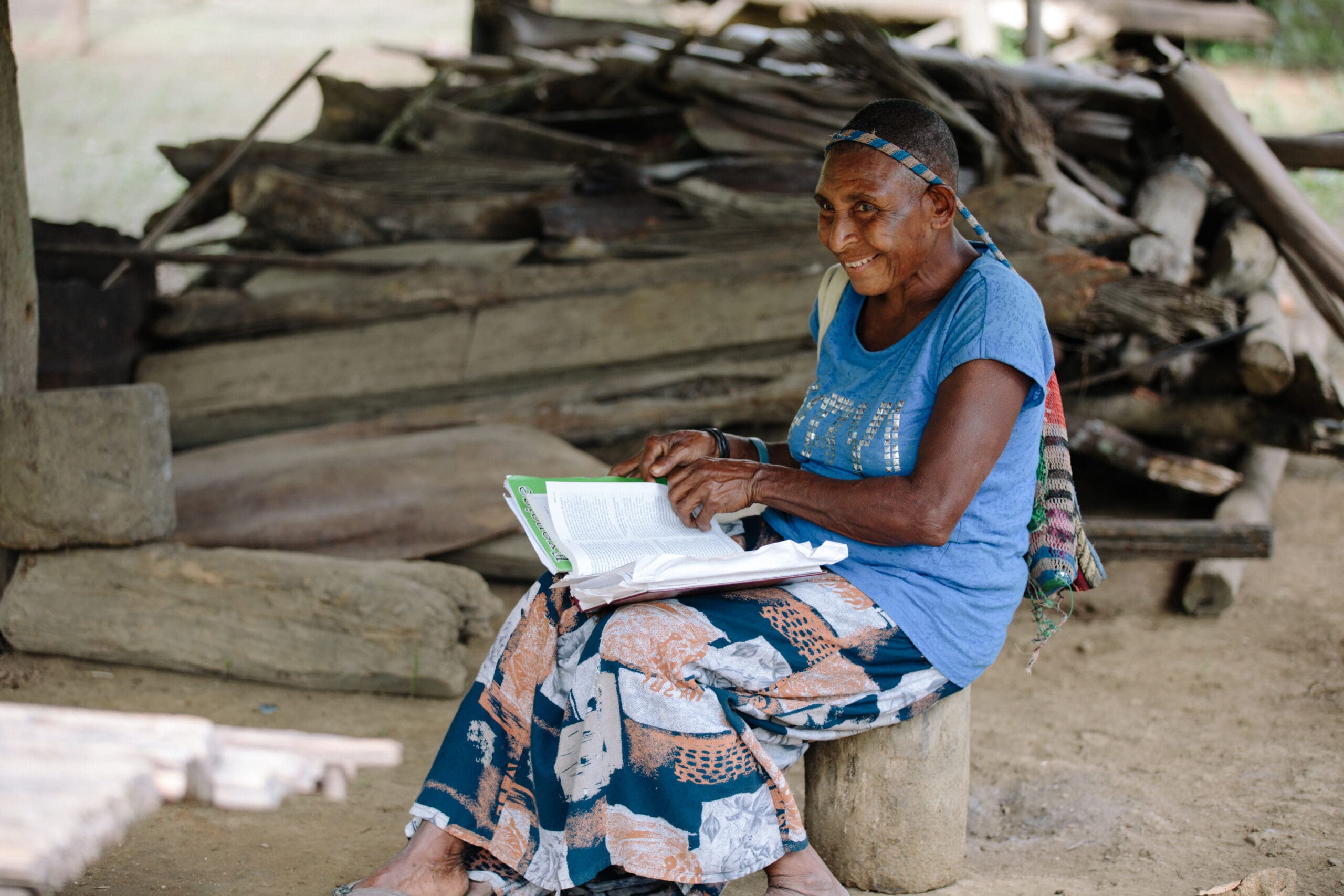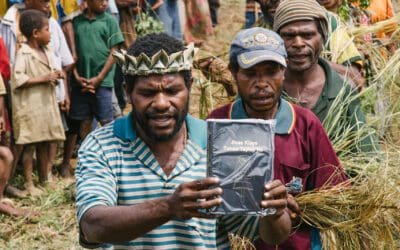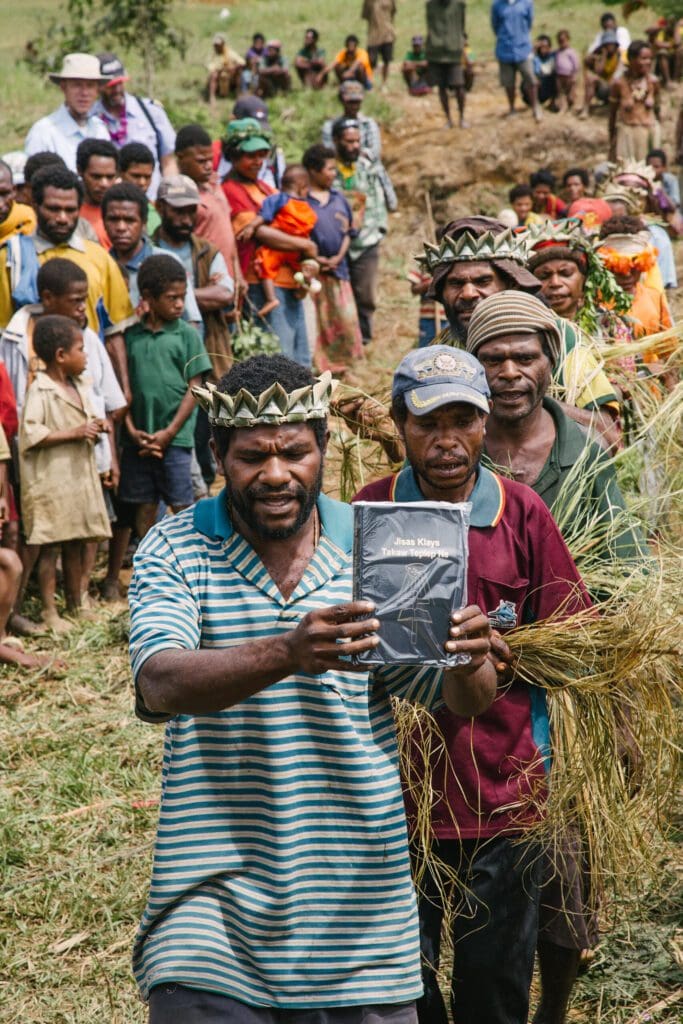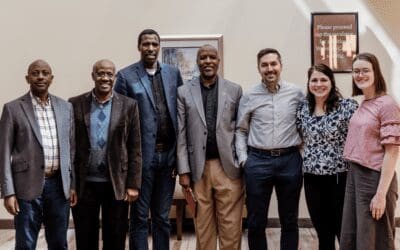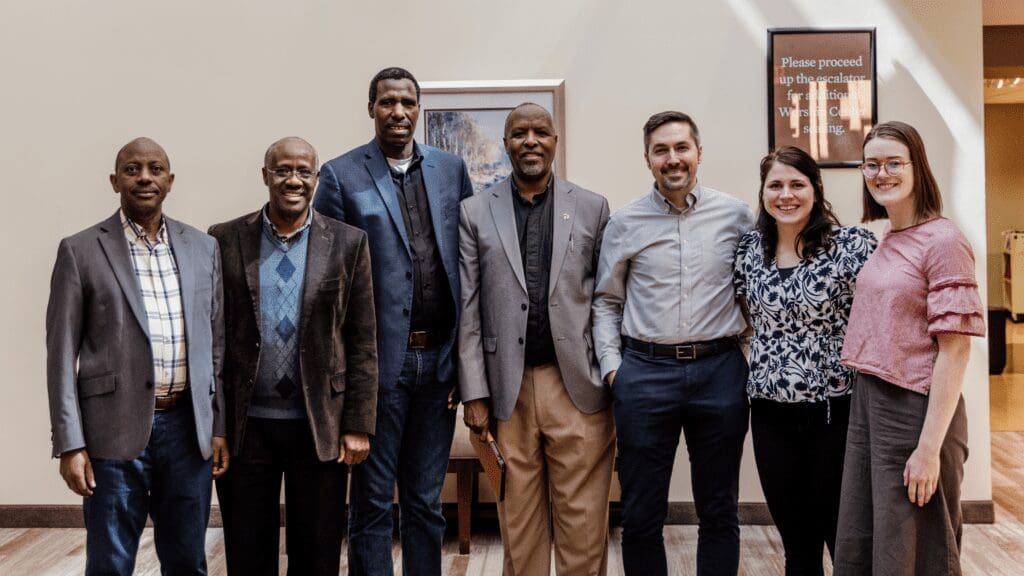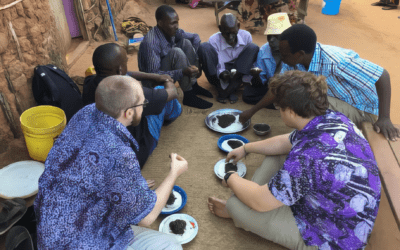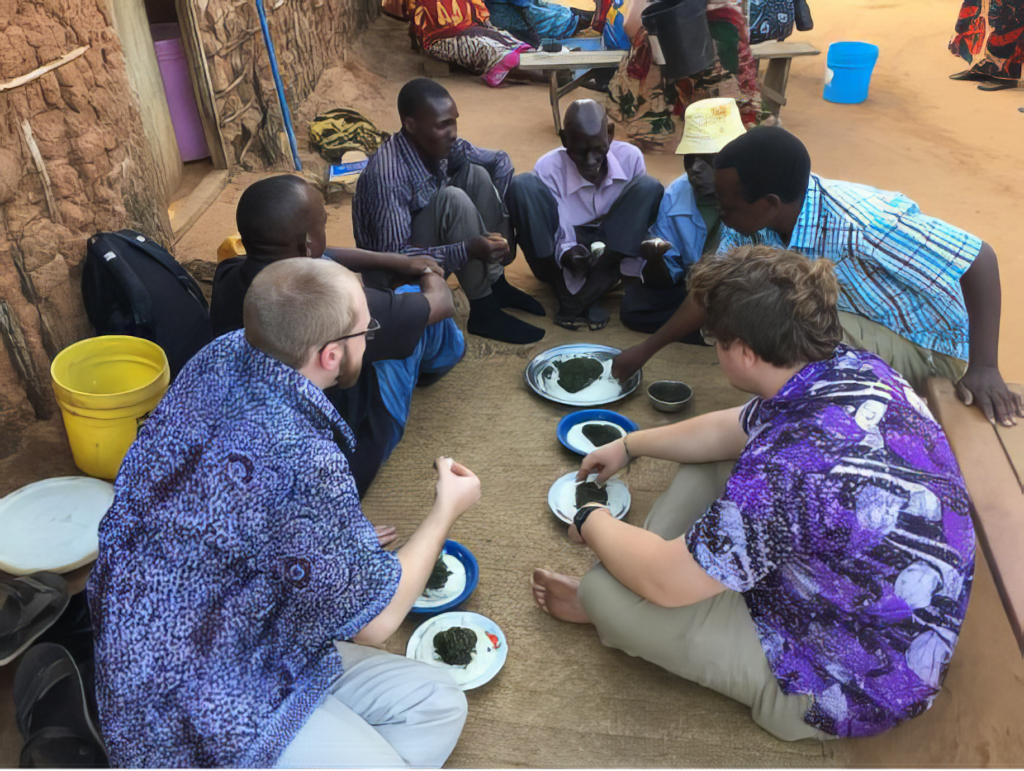Fibi has had a hard life. As an Apal-speaking woman living in a small village tucked deep inside Papua New Guinea’s tropical rainforest, she is accustomed to the challenges of daily life. Yet it seems that she has experienced more than her share of hardship.
Fibi became a Christian in 1984. Though she was eager to follow Jesus, she struggled. The only Scripture available to her and the other Apal people was a New Testament in another language. It was difficult to understand, and she couldn’t study it because she didn’t know how to read.
First Steps
That began to change the following year when Martha Wade, a missionary serving with Pioneer Bible Translators, arrived in Fibi’s village. Her plan was to work with the people to translate Scripture into their own language and offer Scripture-based literacy classes and materials.
Fibi was thrilled to accept Martha’s invitation to test a literacy primer based on Genesis 1-3 in the early ‘90s. She tried very hard during the first lesson. In fact, she was so motivated that Martha let her take the primer home to continue practicing the little that she had learned. Fibi asked God to help her learn, and He answered.
She began reading ahead in her primer and asking Martha questions such as, “Is it true that God has another name — something like Yahweh?” and, “Is it true that all our problems came from the snake and the fruit in the garden?” Fibi wasn’t just using the primer to learn to read. She was giving serious thought to what she was learning, and her desire to have a relationship with God was growing.
She noticed the absence of a crucial component of the primer: lessons on reading numerals. “How can I look up chapters and verses in the Bible if I don’t know how to read numbers?”
Checking Translated Scripture
One important step in Bible translation is community comprehension checking. A member of the translation team reads a text aloud to a group of listeners, then asks questions to discern whether what people hear and understand is consistent with its intended meaning.
Fibi faithfully participated in these checking sessions. As she listened to the Scriptures being read and pondered their meaning, her faith grew stronger.
Testing Her Faith
Fibi decided to test God to see if He was stronger than the spirits that live in the jungle all around her village. The Apal people’s ancestral traditions taught that after a child is born in a village, no one could go to their gardens for three days. If anyone did, the spirits would send wild pigs and other creatures to destroy that family’s garden.
Fibi knew this tradition and the fear it caused. She also knew from hearing about Jesus’ many miracles that He had power over the spirits in the places where He had walked and taught. Was this same power able to protect her and her garden? She was willing to find out. Despite the taboo that was in effect, Fibi prayed and then went to her garden to bring back food for her family. No harm came. God protected her garden.
Fibi chose one test of her faith. She faced others that she didn’t choose
Fibi chose that test. She faced others that she didn’t choose. She bore only three children — far fewer than is typical and even expected for a village woman. Two of these children died within about a year of each other, first her 14-year-old daughter and then her only son. As the 10-year-old was dying, he assured his parents, “I am going to be with Jesus. Don’t worry.” Fibi and her husband chose to stand firm in their faith so that they would be able to join their children in heaven.
In 2013 Fibi’s husband died and she faced a new challenge. Like others who follow animistic traditions, the Apal believe that people die because someone has invoked spiritual forces against them. They seek to identify the supposed killer in order to avenge the death. Fibi, however, stood firm against this practice. She adamantly refused to allow someone else to be killed in revenge for her husband’s death.
Serving Her Church
Fibi has experienced many ups and downs in her walk with the Lord. Yet she has never turned her back on God or the Apal church. Instead, she has humbled herself and continued to grow closer to God.
The church in Fibi’s village experienced a challenging season as, one by one, the men who were seen as qualified to lead removed themselves due to sins they hadn’t yet addressed. The little congregation was in danger of ceasing to meet.
Fibi stepped up. She cleaned the area around the church building. She beat the drum to summon people to gather each Sunday morning. She prepared communion. She led the singing. Sometimes she prepared a short devotional or simply read Scripture. Though she was limited in many ways, she was committed to God and willing to serve Him even if no one else would.
Without her humble, faithful service, the church probably would have stopped meeting.
Serving Her Community
In her quiet, humble way Fibi also served the community outside her church. She helped test the Genesis primer, giving feedback that made it a more effective tool for teaching others to read. She participated in community checking, contributing insights as she soaked in the words that she heard.
“This verse is wrong! We don’t talk like that. You have to correct it.”
Even though she hadn’t become a fluent reader, she was an avid one. She often sat outside, reading a trial copy of a book of translated Scripture. She sounded out words one at a time, which opened her eyes to spelling errors that more fluent readers missed. She also noticed wording that didn’t sound natural. When this happened, she would go to missionary Martha Wade and point out, “This verse is wrong. We don’t talk like that. You have to correct that verse.”
Her tireless efforts to read the Word in order to know God more deeply helped make the published Apal Scriptures better.
A Light to Her Path
Fibi has drawn guidance and encouragement from God’s Word. During times when it would have been easy to choose another path, she has chosen God’s way.
The apostle Paul’s words in 1 Corinthians 9 motivate her. “One day God told me, ‘You must stay here and do my work. You must run the race,’ like Paul talked about. So I work to follow that advice; I don’t think about other things.”
Having God’s Word in her own language has contributed significantly to Fibi’s spiritual journey. “The Apal Scriptures are easier to understand,” she affirms before adding, “With God’s help I can share the Good News with others. I’m not great at sharing God’s Word, but I keep God in mind and His strength helps me share.”
